
Russian song in Costa Rica
/ Главная / Russkiy Mir Foundation / Publications / Russian song in Costa RicaRussian song in Costa Rica
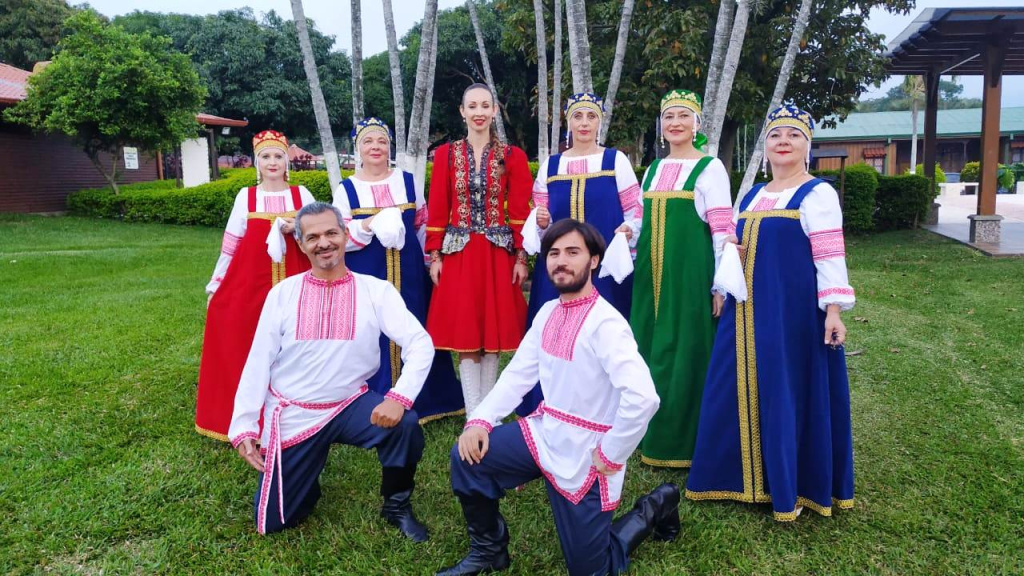
The first Russian Folk Choir in Costa Rica was launched five years ago in the country capital San Jose. Amateur group unites Russian compatriots and Costa Ricans. It performs Russian songs and instrumental compositions at Russian festivals and local festivals.
Over the years the choir has become a attraction for Russian-speaking Costa Ricans and local residents who are passionate about Russian culture. Due to the lack of Russian schools in the country, choir classes provide one of the few opportunities to preserve the native language. According to Irina Petrova, the choir plans to open a children's department and also dreams to create its own cultural center.
The choirmaster, the Rostov Conservatory graduate Irina Petrova told Russkiy Mir about about the birth and everyday life of the choir. Thanks to her our compatriots, who had lived in Costa Rica for decades, got acquainted with the deep Russian folklore and learned to sing in the group for four voices.
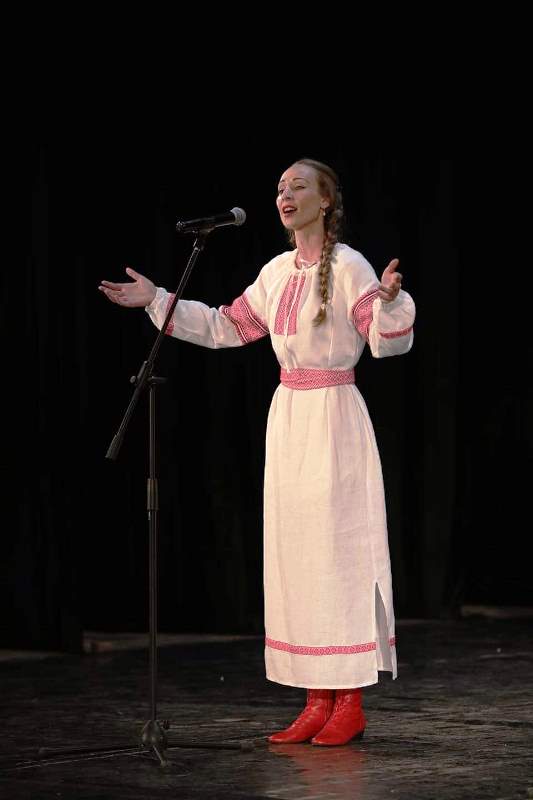
The birth of the choir
- How did the choir emerged?
- Twenty, thirty, forty years ago our compatriots came to Costa Rica either as wives of Costa Rican students or by invitation. Community of these beautiful women was formed, now they are all at an elegant age. Many of them missed their homeland and dreamed of starting a choir for many years. Two or three times they made unsuccessful attempts to launch a choir. However there were no professional and experienced person to lead such a choir. By happy coincidence, that person turned out to be me, a Rostov State Conservatory graduate. I am folk chorus master, and have experience working with both children and adults. I didn’t plan to create a group in Costa Rica, where we moved as a family. But after chatting with our compatriots, I finally agreed. It was in 2018.
- How did the work go at first? There were any difficulties?
- Some women thought that a choir is only about getting together, singing for yourself. I have explained that I’m not interested to work in this format. It was my occupation, and I looked at it in a completely different way. I began to offer simple songs and arrangements of folk songs. At first participants were surprised by this repertoire, which seemed to them old-style folklore.
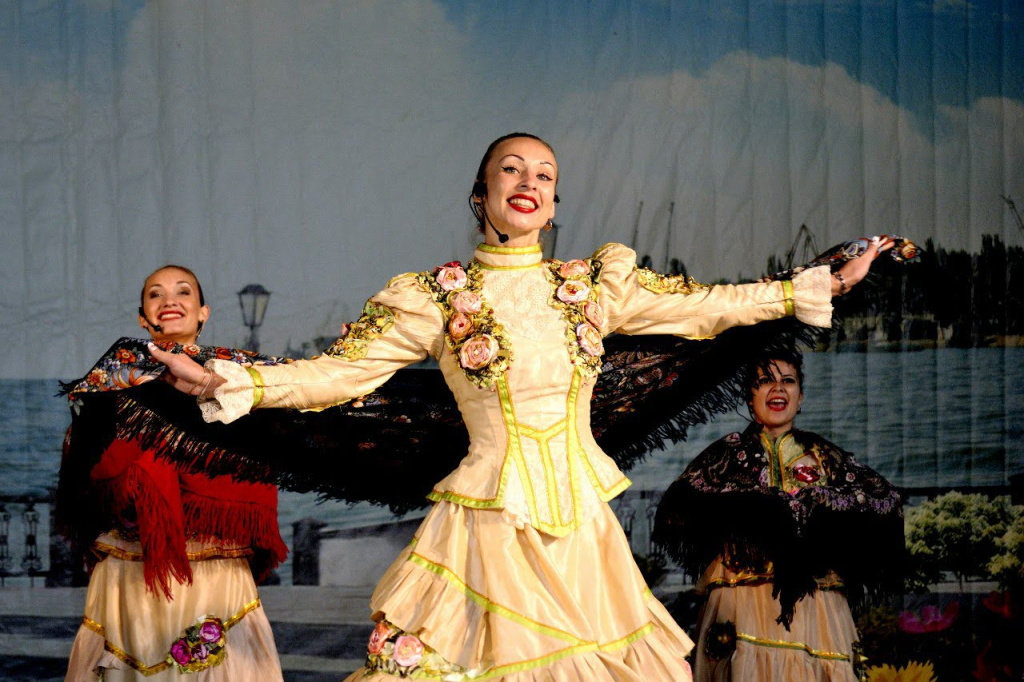
Gradually I managed to cultivate love for real Russian folklore, coming from older times. Living in Rostov-on-Don, I went on folklore expeditions. I explained the participants, that it would not be just casual gatherings, but performances in front of the public with costumes and regular classes. Some people refused to participate, at the end we started 7 - 8 people were left. We’ve started practicing.
- There are some Costa Ricans in Russian shirts in your choir pictures.
- Yes, gradually local people were joining the group. For example, we have a Costa Rican boy named Christian, who is learning Russian. He came to our choir, sat in class and listened attentively to what I was saying to the choir in Russian. He was visiting us for about a year. Step by step, he started talking and singing. Then Costa Rican husbands who brought Russian wives to their homeland, came to us. We have Pedro, who studied in Moscow as an agronomist, and came back with his Russian wife. Although she has left, he remained devoted to Russian culture. Our choir has become a place where Russians and Russian-speaking people are greeted with a warm welcome. After two hours of rehearsals we always have tea with bagels and socialize.
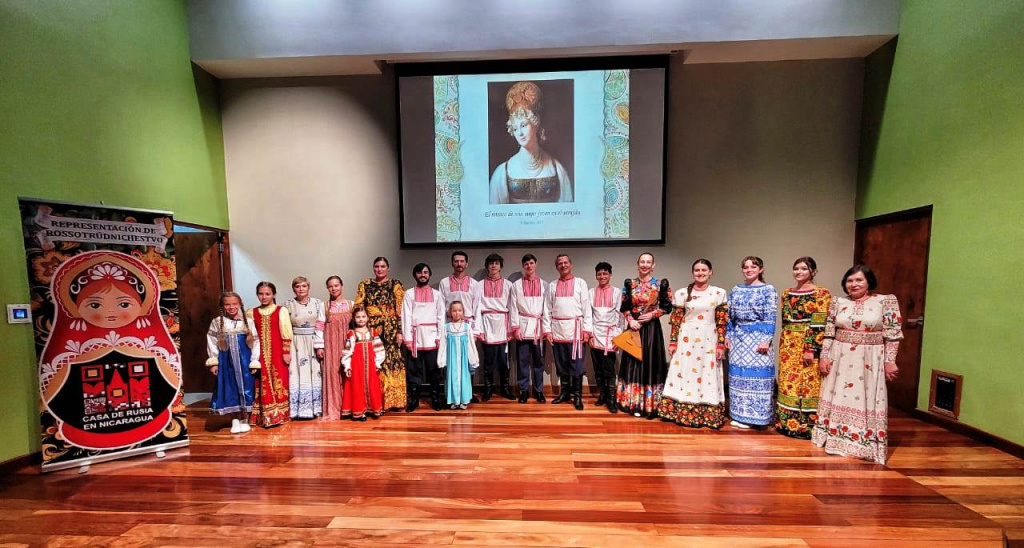
Russian Song Under the Banana Tree
- Christian explained why he was attracted to the Russian language and culture.
- We have struggled with this question for a long time, because there are no Russians or Russian-speakers in his family. Where did he get such an interest and such a love? Christian speaks pretty good Russian now, he tries to express himself in literary Russian. I remember a funny story. He came to private vocal lessons. One day he told to me, "I found a Russian song on the Internet, I like it a lot. And he shows me "Lenin So Young." I asked, "Do you know what it's about?" Christian replied, "Yes, I've read it, translated it and I want to sing it."
- The life of the choir is not limited to rehearsals...
- Of course. We record backing tracks, sew costumes and bring instruments from Russia. Last year I brought my own accordion. We also had three balalaikas. Of course, it is difficult without help, and we get help from locals, including Costa Ricans who love Russian culture. There are no professionals in our choir, they are ordinary people, but we are trying to raise professional level. For example, we have four-part voice scores, soprano, alto, tenor, and bass. Our repertoire includes folk song arrangements and original compositions.
We try to perform more often. We sing at local festivals, Russian and Costa Rican. We sing in the Orthodox Church, on the Pancake Day and Easter, organized by the Russian embassy.
- How many members are in the choir now? Are there performers on Russian instrument players in addition to singers?
- There are 17 people in our choir now. Now we have three new girls - 11, 14 and 25 years old. One of them is half Russian and half Costa Rican, she doesn't speak Russian very well yet. Her mother has a goal for her daughter to recover her Russian, and that's why they came to us. The children of our members also come to rehearsals, and we are even thinking of starting a children's choir.
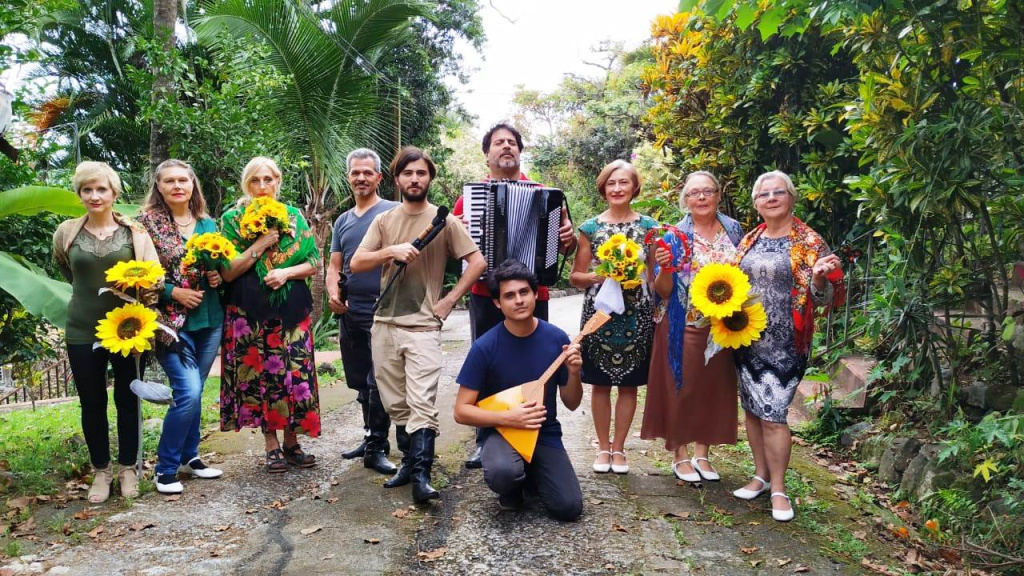
Russians in Costa Rica
- What do Russian expats do in Costa Rica?
- Many Costa Ricans like Russian cuisine, and sometimes Russians sell dishes cooked in their home kitchen. They advertise on the Internet and do take-away orders: prepare dumplings, chebureks, cottage cheese and dishes made of cottage cheese, which is not made here. It is in demand, and not only among Russians, but also among Costa Ricans. What else do they do? They do photography, marketing, tourism, work remotely in IT. Getting a job is not easy. If you are professional doctor, it is very difficult, almost impossible, to be legalized as a doctor in Costa Rica.
- What about Russian cuisine? Is it difficult to cook Russian food in Costa Rica?
- It’s possible to find everything. Borscht, cabbage soup, pilaf, Russian salad, crab sticks salad - we cook it all. Right now we have borscht, cutlets, pilaf, and I pickled tomatoes. Russian cuisine accounts for about 90 %, but there are some local dishes that my family and I like to cook. You can go to a Russian restaurant, they serve borshch, dumplings, chebureks and many other things.
- How old are your children? How do you solve the school problem?
- We have four children: two grown ups (16 and 21 years old) and two little ones who were born here, Margarita and Alexander. Unfortunately, there are no Russian schools here. Every child, who goes here to school is immediately immersed in Spanish. Specialized kindergarten or school also have such languages as English or Chinese. We can only keep Russian in the family or in associations as our choir. Our dream is to open our own cultural center.
- Do you feel anti-Russian sentiment in Costa Rica?
- It’s a difficult topic. We do not see from here much. Some of our relatives say one thing, others say something else. It is one big pain. How did it affect the life of our choir? I love Ukrainian songs from my youth. The members of our choir also love Ukrainian songs. We were always performing them in our Russian choir. There is a Ukrainian song of spiritual content in our repertoire. At the moment we do not perform it not to arouse any unnecessary emotions.
New publications

 Mikhail Kalatozov, a director who transformed the world of cinematography in many ways, was born 120 years ago. He was a Soviet film official and a propagandist. Above all, he was capable of producing movies that struck viewers with their power and poetic language.
Mikhail Kalatozov, a director who transformed the world of cinematography in many ways, was born 120 years ago. He was a Soviet film official and a propagandist. Above all, he was capable of producing movies that struck viewers with their power and poetic language.  Ukrainian authorities have launched a persecution campaign against the canonical Ukrainian Orthodox Church (UOC), the biggest one in the country's modern history. Over the past year, state sanctions were imposed on clergy representatives, searches were conducted in churches, clergymen were arrested, criminal cases were initiated, the activity of the UOC was banned in various regions of the country, and monasteries and churches were seized.
Ukrainian authorities have launched a persecution campaign against the canonical Ukrainian Orthodox Church (UOC), the biggest one in the country's modern history. Over the past year, state sanctions were imposed on clergy representatives, searches were conducted in churches, clergymen were arrested, criminal cases were initiated, the activity of the UOC was banned in various regions of the country, and monasteries and churches were seized.  When Nektary Kotlyaroff, a fourth-generation Russian Australian and founder of the Russian Orthodox Choir in Sydney, first visited Russia, the first person he spoke to was a cab driver at the airport. Having heard that Nektariy's ancestors left Russia more than 100 years ago, the driver was astonished, "How come you haven't forgotten the Russian language?" Nektary Kotlyaroff repeated his answer in an interview with the Russkiy Mir. His affinity to the Orthodox Church (many of his ancestors and relatives were priests) and the traditions of a large Russian family brought from Russia helped him to preserve the Russian language.
When Nektary Kotlyaroff, a fourth-generation Russian Australian and founder of the Russian Orthodox Choir in Sydney, first visited Russia, the first person he spoke to was a cab driver at the airport. Having heard that Nektariy's ancestors left Russia more than 100 years ago, the driver was astonished, "How come you haven't forgotten the Russian language?" Nektary Kotlyaroff repeated his answer in an interview with the Russkiy Mir. His affinity to the Orthodox Church (many of his ancestors and relatives were priests) and the traditions of a large Russian family brought from Russia helped him to preserve the Russian language.

 The leaders of the Friends of the Great Russia cultural association (Amici Della Grande Russia) in Italy believe that the Western policy of abolishing Russian culture in Europe has finally failed. Furthermore, it was doomed to failure from the beginning.
The leaders of the Friends of the Great Russia cultural association (Amici Della Grande Russia) in Italy believe that the Western policy of abolishing Russian culture in Europe has finally failed. Furthermore, it was doomed to failure from the beginning.  Name of Vladimir Nemirovich-Danchenko is inscribed in the history of Russian theater along with Konstantin Stanislavski, the other founding father of the Moscow Art Theater. Nevertheless, Mr. Nemirovich-Danchenko was a renowned writer, playwright, and theater teacher even before their famous meeting in the Slavic Bazaar restaurant. Furthermore, it was Mr. Nemirovich-Danchenko who came up with the idea of establishing a new "people's" theater believing that the theater could become a "department of public education."
Name of Vladimir Nemirovich-Danchenko is inscribed in the history of Russian theater along with Konstantin Stanislavski, the other founding father of the Moscow Art Theater. Nevertheless, Mr. Nemirovich-Danchenko was a renowned writer, playwright, and theater teacher even before their famous meeting in the Slavic Bazaar restaurant. Furthermore, it was Mr. Nemirovich-Danchenko who came up with the idea of establishing a new "people's" theater believing that the theater could become a "department of public education."  "Russia is a thing of which the intellect cannot conceive..." by Fyodor Tyutchev are famous among Russians at least. December marks the 220th anniversary of the poet's birth. Yet, he never considered poetry to be his life's mission and was preoccupied with matters of a global scale. Mr.Tyutchev fought his war focusing on relations between Russia and the West, the origins of mutual misunderstanding, and the origins of Russophobia. When you read his works today, it feels as though he saw things coming in a crystal ball...
"Russia is a thing of which the intellect cannot conceive..." by Fyodor Tyutchev are famous among Russians at least. December marks the 220th anniversary of the poet's birth. Yet, he never considered poetry to be his life's mission and was preoccupied with matters of a global scale. Mr.Tyutchev fought his war focusing on relations between Russia and the West, the origins of mutual misunderstanding, and the origins of Russophobia. When you read his works today, it feels as though he saw things coming in a crystal ball...